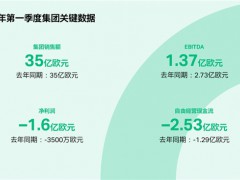據(jù)油價網(wǎng)5月31日報道,繼去年美國頁巖領(lǐng)域出現(xiàn)了一些巨額交易,康菲石油與康喬資源(Concho Resources)合并,雪佛龍收購德文能源(Devon Energy)等之后,看來今年的并購趨勢將延續(xù)。事實上,整合很可能是該行業(yè)前進的唯一道路。Cimarex首席執(zhí)行官在本月早些時候宣布與Cabot Oil& Gas公司的全股票合并后表示:“這是我們度過業(yè)務(wù)周期的更好方式。”《華爾街日報》(Wall Street Journal)援引托馬斯?喬登(Thomas Jorden)的話稱,我們行業(yè)的需求,在向所有者返還自由現(xiàn)金流方面,(告訴我們)我們現(xiàn)金流的這種波動是毒藥,這是對抗波動的一劑妙藥。
近年來,頁巖油股東對回報的要求確實越來越高,而去年席卷該行業(yè)的疫情危機只會加劇這些要求,并促使頁巖油公司重新調(diào)整其優(yōu)先事項。這次,與上次不同的是,他們似乎愿意堅持新的議程。但這需要進一步的整合。
在2014-2016年的上一輪經(jīng)濟低迷期間,頁巖油生產(chǎn)商也曾承諾要控制產(chǎn)量增長,并向股東返還更多現(xiàn)金。但一旦價格開始反彈,產(chǎn)量增長將再次成為他們的首要任務(wù)。現(xiàn)在情況已經(jīng)不同了。最近的暴跌要嚴(yán)重得多,而這一次,能源轉(zhuǎn)型陣營給該行業(yè)帶來了額外的壓力,這一陣營正在改變能源公司股東的構(gòu)成。
目前,爭奪董事會席位以使油氣公司改頭換面、并不再過多關(guān)注石油和天然氣的激進股東正在瞄準(zhǔn)超級巨頭。然而,隨著能源轉(zhuǎn)型議程重塑整個投資業(yè)務(wù),它們蔓延到獨立企業(yè)也只是時間問題。這只會增加美國頁巖油面臨的挑戰(zhàn),包括成本和生產(chǎn)控制。
郝芬 譯自 油價網(wǎng)
原文如下:
The U.S. Shale Patch Could Be In For Another Wave of Mergers
After last year saw some huge deals in the U.S. shale space, with ConocoPhillips merging with Concho Resources and Chevron buying Devon Energy, among others, it looks that this year will see a continuation of the M&A trend. Indeed, it is likely that consolidation is the only way forward for the industry. "It's a better way to ride through the cycles in our business," said the chief executive of Cimarex following the announcement of its all-stock merger with Cabot Oil& Gas Corp earlier this month. "The demands of our sector, in terms of returning free cash flow to our owners, [tell us that] these swings in our cash flow are poison, and this is just a wonderful antidote to volatility," Thomas Jorden said as quoted by the Wall Street Journal.
Shale oil shareholders have indeed become more demanding about returns lately, and the pandemic-driven crisis that shook the industry last year only served to sharpen these demands and prompted shale companies to reorganize their priorities. This time, unlike last time, they seem to be willing to stick with the new agenda. But it requires further consolidation.
During the last downturn in 2014 to 2016, shale producers also promised to rein in production growth and return more cash to shareholders. But as soon as prices began to rebound, growth was once again number one on their priority lists. This is no longer the case. The recent slump was much more severe, and this time, there is additional pressure on the industry from the energy transition camp that is changing the makeup of energy companies' shareholders.
For now, activist shareholders vying for board seats to make oil and gas companies mend their ways and stop being so much about oil and gas are targeting the supermajors. However, it is only a matter of time before they spread to independents, too, as the energy transition agenda reshapes the whole investment business. This will only add to the challenges of U.S. shale oil, among them costs and production control.
免責(zé)聲明:本網(wǎng)轉(zhuǎn)載自其它媒體的文章,目的在于弘揚石化精神,傳遞更多石化信息,并不代表本網(wǎng)贊同其觀點和對其真實性負(fù)責(zé),在此我們謹(jǐn)向原作者和原媒體致以敬意。如果您認(rèn)為本站文章侵犯了您的版權(quán),請與我們聯(lián)系,我們將第一時間刪除。







